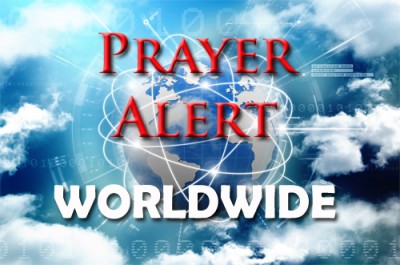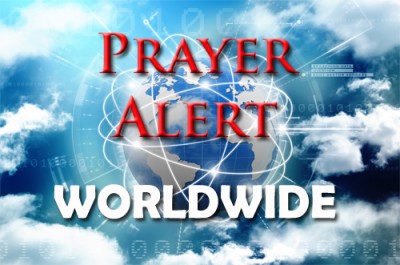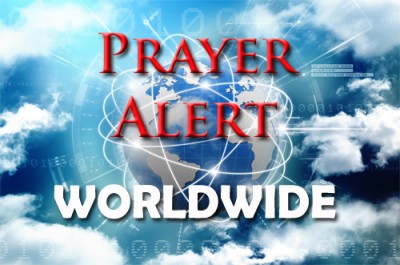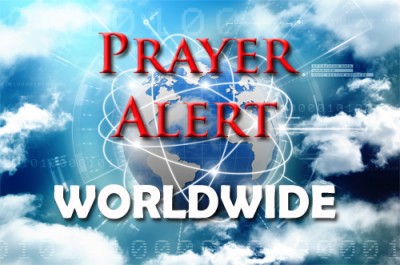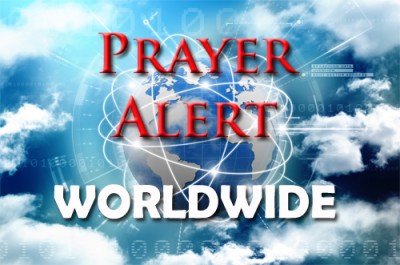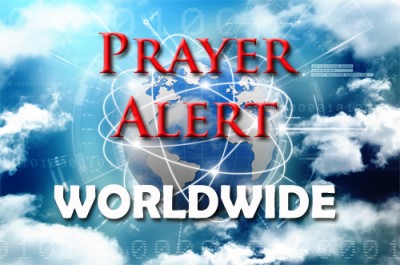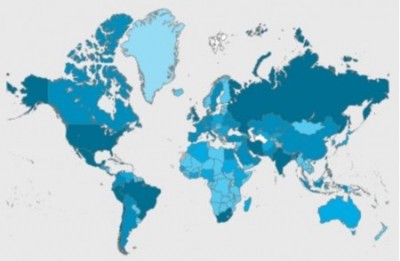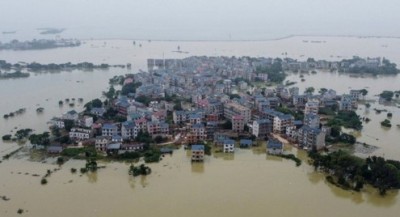The explosion in Lebanon has reignited fears among Sydney residents where a huge chemical plant sits within three kilometres of the Sydney central business district (CBD). Residents have been demanding for years that the stockpile, four times larger than Beirut’s, should be moved away from the CBD and surrounding suburbs. Explosives expert Tony Richards said it is worth noting that plants used to produce and store ammonium nitrate and other explosive chemicals are not uncommon. There are thousands of facilities just like Beirut’s in Texas, Paris, and other places.
Turkey: deporting foreign Christians
06 Aug 2020Dozens of foreign Christians in Turkey have been forced to leave the country or been banned from returning, in what appears to be government targeting of the Protestant Christian community. Many, like Carlos Madrigal of Spain, had been serving in Christian leadership roles in Turkey for decades, forming families and buying property. At the airport in November 2019, Carlos was given a stamp in his passport that would keep him from returning to Turkey, so he cancelled his trip and appealed the decision. He was told, ‘We must inform you that since 2019, it has been made increasingly difficult for foreign Protestant clergy serving in Turkey to be resident in our country’. An estimated 35 Christian workers received similar bans in 2019 and 16 more since the end of June. 10,000 Turkish Protestants attend 170 churches, many of them house churches. Turkey ‘officially’ allows freedom of religion, including conversion from Islam.
Kazakhstan: church buildings confiscated
06 Aug 2020The authorities in Kazakhstan's capital Nur-Sultan ordered the confiscation of the buildings of both Grace Presbyterian Church and Agape Pentecostal Church, which is building a place of worship on the same site. City authorities claim the land is needed for a new kindergarten. But officials refuse to explain why they cannot find another site for this, despite two possibly suitable other buildings being in the same Baikonur District of the capital. The move to confiscate both churches' property was initiated by the Construction and Residential Policy Department. It is unclear if corruption is a factor in the confiscation decision. Local media reported on 17 July that an unnamed former head of the Department is being investigated over the alleged embezzlement of 200 million Tenge (£363,733.80).
On 23 July the Catholic bishop of Pemba spoke out deploring the world’s indifference to escalating extremist violence in northern Mozambique, where multiple churches have been burnt, people beheaded, young girls kidnapped, and over 200,000 people displaced by the violent insurgency. Parliamentarian Paulo Rangel said. There are reports of insurgents beheading fifteen people in a week. Pray for the Church as it works with families who have suffered attacks and have lost everything. Also there is coronavirus in nine out of Mozambique’s ten provinces. Pray for organisations focusing on preventing contagion by disseminating information and raising awareness. Pray for those distributing essential aid to meet families’ immediate needs, including food, seeds, and hygiene kits. See https://www.actionaid.org.uk/about-us/where-we-work/mozambique
China: typhoon follows floods
06 Aug 2020On 4 August, Typhoon Hagupit struck while the Yangtze flood levels were still high (see). Two months of heavy continuous rain had caused 433 river levels to rise above flood control lines, devastating 27 of the country's 31 provinces. Thirty-three rivers reached record highs. Economic losses are about 86 billion yuan (£9,404 million) to date. Pray for God to release ongoing support and humanitarian aid to all of the affected areas. Pray for the millions of displaced people to be safe in their shelters, and for a stable future for countless families whose homes and livelihoods are affected.
USA: Portland police and press in riots
06 Aug 2020On 1 August, demonstrators in Portland damaged property and set fire to American flags and Bibles. Again, little law enforcement presence was visible, and no arrests were made. After weeks of similar violent rioting and nightly attacks, on 4 August federal officers saw their first night of state and local law enforcement support and experienced relative peace with crowds ‘subdued.’ Activity around the courthouse continues, but violence is diminishing after an increased state and federal law presence on the ground. It will remain until the authorities determine that the courthouse and other federal properties are safe. Although crowd sizes have dwindled from the thousands in July, observers on 6 August reported many people, including some with ‘press’ written on their outer garments (indicating journalists), continuing to throw glass and plastic bottles at police officers.
As of Wednesday morning, the novel coronavirus has infected more than 18.5 million people across 188 countries and territories, resulting in at least 700,896 deaths. In the U.S., all 50 states plus the District of Columbia have reported confirmed cases of COVID-19, tallying more than 4,771,519 illnesses and at least 156,830 deaths. Pharmaceutical companies around the globe are in a race to find a verifiable and safe vaccine, with human trials now taking place. Meanwhile, there is growing support among physicians and epidemiologists for the use of hydroxychloroquine. Compelling testimonies are being publicised showing that when taken in tandem with zinc and particular anti-biotics (azithromycin or doxycycline), it has had remarkable results. Let's be praying that political differences can be laid aside so that the merits of this treatment can be confirmed speedily through clinical trials so that many people can benefit widely from it.
Pray that the covid-19 virus is stopped in its tracks.
Pray for a verified vaccine to be successfully developed and produced.
Pray that the inexpensive and effective use of hydroxychloroquine can be trialled and rolled out quickly, so that all nations can benefit from it.
Pray that the economic and societal impacts of the global pandemic will be minimised and reversed quickly.
More info: https://www.ipcprayer.org/ipc-connections/item/13224-covid-19-pandemic-prayer-update.html
Intense rain and severe flooding has been battering China since early June serious flooding across 27 of the country's 31 provinces. Currently, the water level of 433 rivers is above the flood control line, with 33 of them reaching record highs. It has already affected more than 37 million people, leaving 141 dead or missing. Economic losses are estimated at 86 billion yuan (US$12.3 billion) so far.
Let's agree in praying for the heavy seasonal rains to stop and for the waters to subside.
Pray for the millions of displaced people and for the huge numbers of families whose homes and livelihoods have been affected.
Pray that support and assistance will reach people in all of the affected areas.
More info: https://www.bbc.co.uk/news/world-asia-china-53434767
